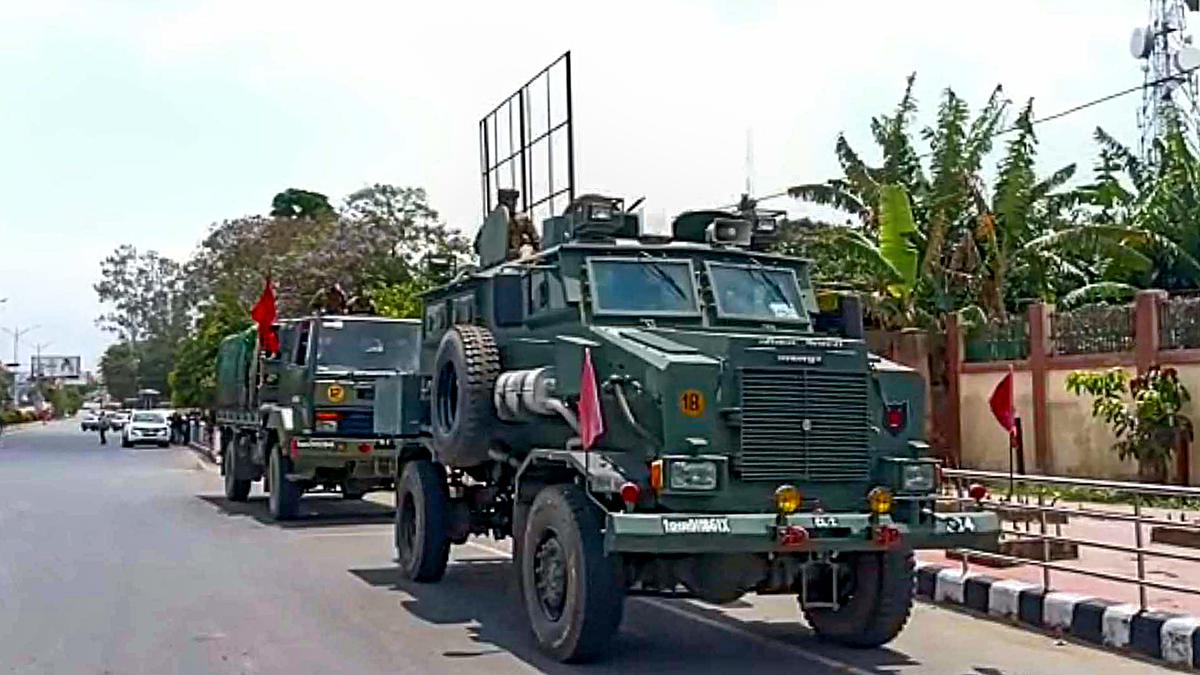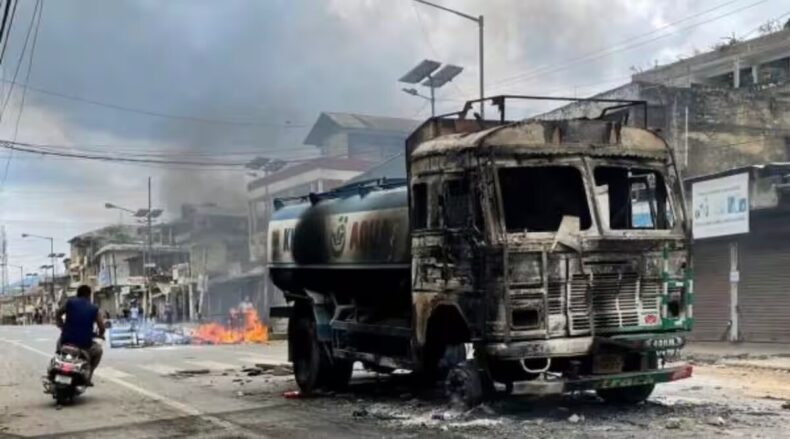In a disturbing development that has raised tensions in northeastern India, Manipur police have filed a criminal complaint against the Assam Rifles, a paramilitary force operating in the region. The decision stemmed from an incident in the border area, revealing the complex interplay between security forces, local authorities, and the persistent socio-political challenges facing the region.
India’s northeastern states have long been hotbeds of ethnic and territorial disputes, often characterized by historical grievances and complex geographical boundaries. Manipur, one such state, has been grappling with identity disputes for decades. The Assam Rifles, which operate with the dual mission of maintaining internal security and protecting the India-Burma border, play a vital role in the region. However, his actions have also been a point of contention, often leading to friction between the force and the local community.

The incident led to a criminal case involving an alleged conflict between Assam Rifles employee and a group of Manipuri youths. According to reports, a heated argument over a local issue escalated into a physical confrontation, resulting in injuries to both sides. Manipur Police’s decision to take criminal action against the Assam Rifle marks an important step, as it meets the longstanding requirement for accountability in cases of alleged security force violations. .
This decision provoked a series of reactions from many sides. Local civil society organizations and human rights activists praised the police action, seeing it as a necessary step to address the grievances of locals. They call for a thorough and transparent investigation to determine the truth and hold those responsible accountable. However, the incident has also revived calls to repeal the Armed Forces Special Powers Act (AFSPA) in the region, which controversially grants broad powers to security forces.
The response of the central government to this development is extremely important. The relationship between the central government and the northeastern states of India is often characterized by a delicate balance between maintaining security and respecting sensitive local issues. A delicate approach that takes into account both the security requirements and the rights of the local population is crucial to preventing further escalation. The current incident also highlights the need for better coordination between the various security agencies operating in the region to avoid such clashes in the future.
Ethnic tensions and territorial disputes in the Northeast have deep historical roots. These tensions are further complicated by the region’s diverse cultural context, where different communities often seek greater autonomy and recognition of their distinct identities. The situation calls for a holistic approach that addresses socio-political issues in addition to security concerns. Initiatives that promote dialogue, promote inclusiveness, and respond to the aspirations of different ethnic groups can play a central role in easing tensions and building a more stable environment.
During the investigation of the case, it is imperative to respect the principles of justice and fairness. Transparent procedures and a commitment to complying with the law are key to restoring the trust of locals. The outcome of this incident is likely to have broader implications, affecting public perception of security forces and their role in the region. It could set a precedent for how excess allegations are handled in the future, shaping the dynamics between the security establishment and the local community.
The filing of a criminal complaint against the Assam Rifles by the Manipur Police highlights the multifaceted challenges that persist in northeastern India. This incident highlights the need for a balanced approach that addresses security concerns while respecting the rights and aspirations of local people. This is the right time for the authorities to engage in constructive dialogue, take confidence-building measures, and work towards a more inclusive and harmonious future for the region. The outcome of this case could serve as a turning point in the complex trajectory of security and stability in northeastern India.












